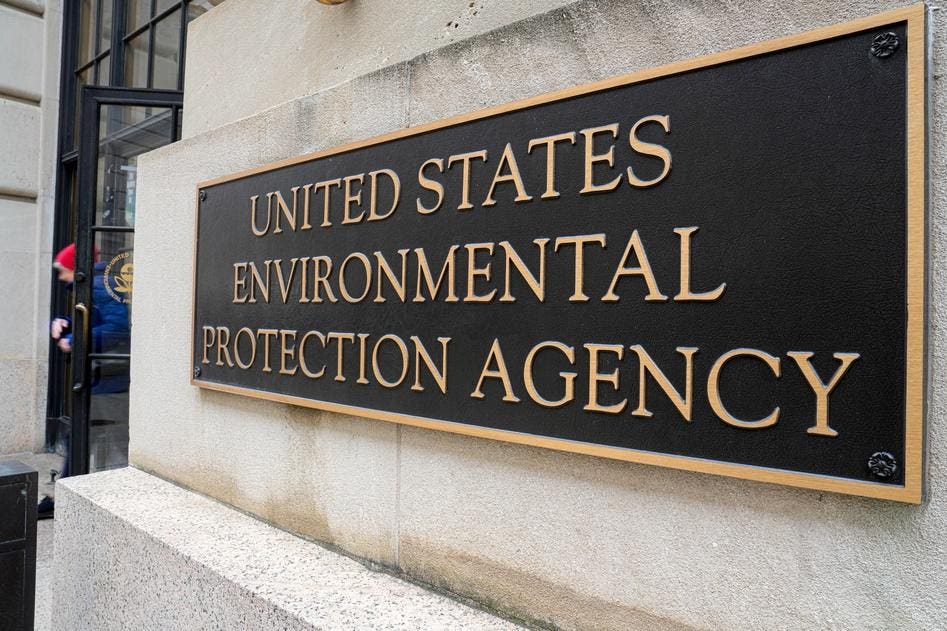Project 2025 has gained attention recently as Democrats have latched onto it to try to draw policy contrasts between President Joe Biden and former President Donald Trump. A look at the chapter on the Environmental Protection Agency highlights the conservative disagreement with climate change policies and greenhouse gas reporting. Although not the official policy of the Trump campaign, it signals a reprioritization of climate change policies and struggles for environmental, social, and governance reporting if Trump wins a second term.
The Paris Agreement is an international treaty adopted in 2015 to address the impacts of climate change. The agreement sets a goal of reaching net-zero greenhouse gas emissions by 2050. To reach that goal, a series of policies were adopted to address how governments and businesses reduce and report GHG emissions. It also focused on funding of both climate change initiatives and the economic impacts of climate change. The U.S signed the treaty in 2015. In 2020, President Trump withdrew the U.S. from the treaty, only for President Biden to rejoin in 2021.
As international focus on climate change increased in the wake of the Paris Agreement, there was a simultaneous increase in pressure on businesses to be more accountable for their climate and environmental policies. This translated into a rise in ESG policies from governments and ESG/ sustainability reports by companies.
Around 2020, the production of ESG reports became standard practice by both publicly traded and privately held companies. However, there was no standardization of content. Companies could include what they wanted, from environmental policies to LGBTQ+ initiatives. This lack of standardization was problematic, especially as ESG was becoming a factor in financial reporting and investment strategy.
Regulators scrambled to create sustainability reporting standards. In March 2022, the SEC proposed the development of climate-related reporting standards. The final rule, adopted on March 6, 2024, required large publicly traded companies to disclose climate action, GHG emissions, and the financial impacts of severe weather events. The rule was initially set to go into effect in 2026, however implementation has been delayed due to legal challenges.
The key component of sustainability reports internationally is the reporting of GHG emissions. Those emissions are divided into three scopes. Scope 1 addresses the direct GHG emissions from the company. Scope 2 includes emissions from the production of energy used by the company. Scope 3 addresses indirect emissions from consumers and suppliers. Scope 3 is problematic in the U.S. and was not included in the SEC rule. Information included in Scope 2 relies heavily on reporting standards set by the EPA.
The rapid expansion of ESG and climate change policies is a significant concern to conservatives. Therefore, it is not surprising that the EPA’s role was addressed in Project 2025.
The 2025 Presidential Transition Project is organized by the Heritage Foundation, a conservative think-tank founded in 1973. When there is a change of presidential administration, the incoming president will establish a transition team to organize policy, review existing personnel, and fill vacant positions. It prepares the administration to being work on the day the president is sworn in. Project 2025 is attempting to preemptively influence that transition. To do that, Project 2025 is offering a policy agenda in the form of a book, personnel, training, and a 180-day playbook. Project 2025 is not officially associated with the Trump Campaign and Trump has denied knowledge of its existence, although it is highly likely that the policy proposals will align with a second Trump presidency.
The Project 2025 book, “Mandate for Leadership: The Conservative Promise”, uses a format familiar to academic publications. The book carries a theme, but each chapter is authored by subject matter experts.
The chapter on the EPA was authored by Mandy Gunasekara, an attorney who served as Chief of Staff for the agency during the Trump presidency. Her campaign website describes her as “a veteran Republican climate and energy strategist, communicator, and environmental attorney who has a well-earned reputation for delivering results.” Additionally, it states she “was the chief-architect of the Paris Accord withdrawal.” She is a visiting fellow at Heritage.
Gunasekara’s chapter includes detailed recommendations relating to the EPA, including its focus on climate change. Her approach is best summarized when she stated, that “the EPA under the Biden Administration has returned to the same top-down, coercive approach that defined the Obama Administration. There has been a reinstitution of unachievable standards designed to aid in the ‘transition’ away from politically disfavored industries and technologies and toward the Biden Administration’s preferred alternatives. This approach is most obvious in the Biden Administration’s assault on the energy sector as the Administration uses its regulatory might to make coal, oil, and natural gas operations very expensive and increasingly inaccessible while forcing the economy to build out and rely on unreliable renewables …
“The EPA has been a breeding ground for expansion of the federal government’s influence and control across the economy. Embedded activists have sought to evade legal restraints in pursuit of a global, climate-themed agenda, aiming to achieve that agenda by implementing costly policies that otherwise have failed to gain the requisite political traction in Congress. Many EPA actions in liberal Administrations have simply ignored the will of Congress, aligning instead with the goals and wants of politically connected activists.”
Further, she states, “Although the U.S. environmental story is very positive, there has been a return to fear-based rhetoric within the agency, especially as it pertains to the perceived threat of climate change. Mischaracterizing the state of our environment generally and the actual harms reasonably attributable to climate change specifically is a favored tool that the Left uses to scare the American public into accepting their ineffective, liberty-crushing regulations, diminished private property rights, and exorbitant costs. In effect, the Biden EPA has once again presented a false choice to the American people: that they have to choose between a healthy environment and a strong, growing economy”
Specifically addressing GHG emission reporting, and the expansion of reporting requirements, Gunasekara proposes that the EPA:
“Remove the Greenhouse Gas Reporting Program (GHGRP) for any source category that is not currently being regulated. The overall reporting program imposes significant burdens on small businesses and companies that are not being regulated. This is either a pointless burden or a sword-of- Damocles threat of future regulation, neither of which is appropriate.
“Establish a system, with an appropriate deadline, to update the 2009 endangerment finding.
“Establish a significant emissions rate (SER) for greenhouse gasses (GHGs).”
It is unclear how much of Gunasekara’s opinions and proposals align with the Trump campaign or a second Trump term.
Read the full article here














